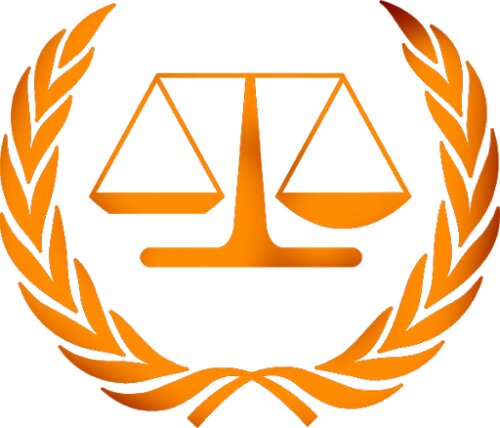ทนายความ ชนพื้นเมือง ที่ดีที่สุดใน ลาดกระบัง
แบ่งปันความต้องการของคุณกับเรา รับการติดต่อจากสำนักงานกฎหมาย
ฟรี ใช้เวลา 2 นาที
รายชื่อทนายความที่ดีที่สุดใน ลาดกระบัง, ประเทศไทย
1. เกี่ยวกับกฎหมายชนพื้นเมืองในลาดกระบัง, ประเทศไทย
ในประเทศไทย คำว่า “ชนพื้นเมือง” มักหมายถึงกลุ่มชาติพันธุ์ที่มีประวัติความอยู่ถิ่นมานานและมีวัฒนธรรมเฉพาะตัว แม้ในลาดกระบัง ซึ่งเป็นเขตชานเมืองกรุงเทพมหานคร จะไม่มีชุมชนชนพื้นเมืองที่ได้รับการยอมรับในระดับพื้นที่อย่างชัดเจนบนบัตรจดทะเบียนที่ดินทั่วไป
กฎหมายชนพื้นเมืองส่วนใหญ่ในประเทศไทยจึงทำงานผ่านกรอบกฎหมายระดับชาติแทนระดับท้องถิ่นลาดกระบัง เช่น สิทธิในที่ดินและทรัพยากรธรรมชาติจะขึ้นกับกฎหมายทั่วไปและคำพิพากษาศาล มากกว่ากฎระเบียบเฉพาะเขต
สำหรับผู้อยู่ในลาดกระบัง ความเข้าใจเรื่องที่ดินจึงควรผสานระหว่างสิทธิพื้นฐานของบุคคลทุกคนกับกรอบกฎหมายแรงงาน ครอบครัว และทรัพยากรธรรมชาติที่บังคับใช้ทั่วประเทศ
แหล่งข้อมูลอ้างอิงทางการ เช่น go.th และกระทรวงมหาดไทย สามารถให้ภาพรวมแนวทางการคุ้มครองสิทธิของประชาชนโดยไม่จำกัดเฉพาะเขต
2. ทำไมคุณอาจต้องการทนายความ
ต่อไปนี้เป็นสถานการณ์เฉพาะที่อาจต้องการทนายความด้านชนพื้นเมืองในลาดกระบัง
- ถูกคุกคามหรือถูกบังคับย้ายออกจากที่อยู่อาศัยในเขตลาดกระบัง เนื่องจากโครงการพัฒนาเอกชนหรือสาธารณประโยชน์ที่ดิน
- มีข้อพิพาทเกี่ยวกับสิทธิครอบครองที่ดินของชุมชนพื้นถิ่นที่อาศัยอยู่ในพื้นที่รอบสนามบินสุวรรณภูมิหรือพื้นที่โดยรอบ
- ต้องการทรัพยากรธรรมชาติที่ชุมชนใช้ประโยชน์มานาน เช่น แหล่งน้ำ หรือที่ดินเพื่อทำเกษตรกรรม และต้องการหลักฐานสิทธิอย่างเป็นทางการ
- มีข้อพิ frecuentes ในครอบครัว เช่น มรดกหรือการถ่ายโอนที่ดินภายในชุมชน และจำเป็นต้องมีคำแนะนำด้านกฎหมายครอบครัวและทรัพย์สิน
- มีข้อสงสัยเรื่องสัญญาเช่าที่ดินกับผู้ประกอบการพัฒนา หรือสัญญาเช่าบ้านในพื้นที่ลาดกระบังที่มีเงื่อนไขไม่เป็นธรรม
- สถานการณ์งานขับเคลื่อนชุมชน เช่น การจ้างงานแรงงานในชุมชนที่เป็นชนพื้นเมืองและสิทธิแรงงานที่เกี่ยวข้อง
3. ภาพรวมกฎหมายท้องถิ่น
ในลาดกระบังไม่มี “กฎหมายชนพื้นเมืองเฉพาะพื้นที่” ที่ระบุชื่อชัดเจนในระดับท้องถิ่น ขอชี้แจงว่าแนวทางการคุ้มครองชนพื้นเมืองมักอ้างอิงกรอบกฎหมายระดับประเทศที่บังคับใช้ในทุกจังหวัดรวมถึงกรุงเทพฯ
ดังนั้น กรอบกฎหมายสำคัญที่มักถูกอ้างถึงเมื่อพูดถึงชนพื้นเมืองในประเทศไทยประกอบด้วยกฎหมายระดับชาติที่มีผลบังคับใช้อย่างทั่วประเทศ ซึ่งรวมถึงการคุ้มครองสิทธิและการจัดการทรัพยากรธรรมชาติ
กรอบกฎหมายที่มักถูกอ้างถึงเพื่อประเด็นชุมชนและสิทธิในทรัพยากร ได้แก่
- รัฐธรรมนูญแห่งราชอาณาจักรไทย พ.ศ. 2560 ซึ่งรับรองเสรีภาพและความเท่าเทียมของประชาชนทุกคน
- พระราชบัญญัติป่าไม้ พ.ศ. 2484 ที่เกี่ยวข้องกับการใช้งานและการสงวนทรัพยากรป่าไม้ที่อาจกระทบชุมชนในพื้นที่
- พระราชบัญญัติคุ้มครองคุณภาพสิ่งแวดล้อม พ.ศ. 2535 ซึ่งมีส่วนกำกับการดูแลทรัพยากรธรรมชาติในทุกพื้นที่รวมถึงลาดกระบัง
อ้างอิงแนวทางทั่วไปจากแหล่งราชการ เช่น go.th และกรมต่างๆ ที่แสดงให้เห็นกรอบสิทธิรากหญ้าในพื้นที่ทั่วประเทศ
4. คำถามที่พบบ่อย
อะไรคือชนพื้นเมืองในบริบทประเทศไทย และมีบทบาททางกฎหมายอย่างไรในลาดกระบัง
ชนพื้นเมืองหมายถึงกลุ่มชาติพันธุ์ที่มีอายุมายาวนานในถิ่นที่อยู่เดิม มีบทบาทโดยรวมในการรักษวัฒนธรรมและทรัพยากรท้องถิ่น กฎหมายระดับชาติคุ้มครองสิทธิพื้นฐานและทรัพยากรภายในพื้นที่ทั้งหมด รวมถึงลาดกระบังด้วย
อย่างไรที่คุณจะระบุชนพื้นเมืองในกรณีของคุณในลาดกระบังได้อย่างถูกต้อง
ต้องมีหลักฐานที่ชัดเจนเกี่ยวกับถิ่นอาศัยเดิม ประวัติชุมชน และการใช้ทรัพยากรท้องถิ่น ตราบใดที่ไม่มีทะเบียนชนพื้นเมืองเฉพาะพื้นที่ คุณจะพึ่งกรอบกฎหมายทั่วไปและเอกสารพิสูจน์ความอยู่ร่วมกัน
เมื่อไหร่ควรปรึกษาทนายความด้านชนพื้นเมืองในกรณีที่ถูกคุกคามพื้นที่บ้านในลาดกระบัง
เมื่อมีการยึดครองที่ดิน การสืบอสังหาริมทรัพย์ หรือการบังคับให้ย้ายออกจากพื้นที่อยู่อาศัย ควรปรึกษาทนายความทันทีเพื่อประเมินสิทธิและเรียกร้องตามกฎหมาย
ที่ไหนสามารถหาทนายความด้านชนพื้นเมืองในลาดกระบังได้บ้าง
คุณสามารถค้นหาทนายความจากสถาบันกฎหมาย หรือสภาทนายความจังหวัดกรุงเทพมหานคร และสอบถามผู้ให้คำปรึกษาของหน่วยงานรัฐบาลที่มีบริการให้คำปรึกษาฟรีในพื้นที่
ทำไมการจดบันทึกสิทธิชุมชนถึงสำคัญสำหรับชุมชนในลาดกระบัง
การบันทึกสิทธิช่วยป้องกันการโอนสิทธิที่ไม่เป็นธรรม และเป็นหลักฐานในกระบวนการฟ้องร้องหรือเจรจา ตามกฎหมายพื้นฐานที่คุ้มครองสิทธิชุมชน
สามารถคุ้มครองข้อมูลส่วนบุคคลของชนพื้นเมืองในลาดกระบังได้อย่างไร
ข้อมูลส่วนบุคคลต้องได้รับการปกป้องตามกฎหมายคุ้มครองข้อมูลส่วนบุคคล กรณีข้อมูลชุมชนหรือลายมือชื่อที่ใช้ยืนยันสิทธิ ควรมีขอบเขตการใช้ที่ชัดเจนและได้รับความยินยอม
ควรเตรียมเอกสารอะไรบ้างก่อนหารือกับทนายความด้านชนพื้นเมือง
เตรียมแผนที่ที่ดิน บันทึกชุมชน หลักฐานครอบครอง พยานบุคคล รูปถ่าย และสัญญาเกี่ยวกับการใช้ประโยชน์ในทรัพยากร เพื่อให้ทนายเห็นภาพรวมชัดเจน
อะไรคือความแตกต่างระหว่างสิทธิในที่ดินของชนพื้นเมืองกับสิทธิของคนทั่วไป
ชนพื้นเมืองอาจมีสิทธิการใช้ทรัพยากรหรือที่ดินตามประเพณี ซึ่งต้องตรวจสอบตามกฎหมายทั่วไปที่รับรองสิทธิพื้นที่ หากมีข้อพิพาท สนับสนุนด้วยพยานหลักฐานและเอกสาร
รูปแบบการให้คำปรึกษาทางกฎหมายชนพื้นเมืองในลาดกระบังมีรูปแบบใดบ้าง
มีทั้งการปรึกษาแบบบุคคล การให้คำปรึกษาผ่านวิดีโอคอนเฟอเรนซ์ และการให้คำปรึกษาเป็นกลุ่มชุมชน โดยมีค่าใช้จ่ายและระยะเวลาที่แตกต่างกันตามกรณี
ระยะเวลาในการดำเนินคดีชนพื้นเมืองในกรุงเทพฯโดยทั่วไปนานแค่ไหน
ระยะเวลาขึ้นกับความซับซ้อนของคดีและการรวบรวมพยาน โดยทั่วไปคดีที่เกี่ยวกับทรัพยากรหรือสิทธิที่ดินอาจใช้เวลาหลายเดือนถึงหลายปี
ค่าใช้จ่ายในการให้บริการทนายความด้านชนพื้นเมืองในลาดกระบังคิดอย่างไร
ค่าใช้จ่ายมักแบ่งเป็นค่าปรึกษา ค่าบริการต่อชั่วโมง และค่าศาลตามความซับซ้อนของกรณี บางกรณีอาจมีค่าใช้จ่ายขั้นต่ำก่อนเริ่มงาน
ฉันควรทำอย่างไรหากไม่ได้รับความช่วยเหลือทางกฎหมายที่เหมาะสม
ลองติดต่อหน่วยงานสวัสดิการด้านกฎหมายของรัฐหรือองค์กรพัฒนาเอกชนที่ให้คำปรึกษาฟรี และขอข้อมูลการอุทธรณ์หรือเปลี่ยนแปลงคำตัดสิน
5. ทรัพยากรเพิ่มเติม
ต่อไปนี้เป็นแหล่งข้อมูลทางการที่เกี่ยวข้อง ที่สามารถให้ข้อมูลด้านกฎหมายและสิทธิชุมชนได้
- go.th - เว็บไซต์ทางการของรัฐบาลไทย เพื่อข้อมูลนโยบายและบริการต่างๆ
- กระทรวงมหาดไทย (MOI) - บทบาทด้านการปกครองท้องถิ่นและที่ดินในชุมชน
- ราชกิจจานุเบกษา - เอกสารกฎหมายและประกาศราชการที่เผยแพร่โดยทางการ
บรรณานุกรมอ้างอิง: go.th, moi.go.th, krisdika.go.th และ dnp.go.th เป็นแหล่งข้อมูลที่สามารถตรวจสอบได้สำหรับกฎหมายและนโยบายที่มีผลในลาดกระบัง
6. ขั้นตอนถัดไป
- รวบรวมข้อมูลรัฐบาลพื้นฐานเกี่ยวกับสถานการณ์ของคุณ เช่น ที่อยู่เดิม ข้อมูลทรัพย์สิน และเอกสารประจำตัว
- ค้นหาทนายความด้านชนพื้นเมืองในกรุงเทพมหานครผ่านสภาทนายความจังหวัดหรือศูนย์บริการข้อมูลทางกฎหมาย
- นัดปรึกษาครั้งแรก เพื่อประเมินสิทธิและแนวทางการดำเนินคดีหรือการเจรจา
- เตรียมเอกสารสนับสนุนคำร้อง เช่น แผนที่ที่ดิน รูปถ่าย และพยานหลักฐาน
- ประเมินค่าใช้จ่ายและเวลาที่คาดการณ์สำหรับคดีหรือประเด็นที่ต้องการเรียกร้อง
- ทำสัญญาจ้างทนายความและกำหนดขอบเขตงานอย่างชัดเจน
- ติดตามความคืบหน้าคดีเป็นระยะ พร้อมขอรายงานสถานะอย่างน้อยเดือนละครั้ง
Lawzana ช่วยคุณค้นหาทนายความและสำนักงานกฎหมายที่ดีที่สุด ใน ลาดกระบัง ผ่านรายชื่อผู้เชี่ยวชาญด้านกฎหมายที่มีคุณสมบัติเหมาะสมที่คัดสรรและตรวจสอบล่วงหน้า แพลตฟอร์มของเรานำเสนอการจัดอันดับและโปรไฟล์โดยละเอียดของทนายความและสำนักงานกฎหมาย ช่วยให้คุณเปรียบเทียบตามสาขากฎหมาย รวมถึง ชนพื้นเมือง ประสบการณ์ และความคิดเห็นของลูกค้า
แต่ละโปรไฟล์ประกอบด้วยคำอธิบายเกี่ยวกับสาขากฎหมายของสำนักงาน รีวิวจากลูกค้า สมาชิกในทีมและหุ้นส่วน ปีที่ก่อตั้ง ภาษาที่พูด ที่ตั้งสำนักงาน ข้อมูลการติดต่อ การมีตัวตนบนโซเชียลมีเดีย และบทความหรือแหล่งข้อมูลที่เผยแพร่ สำนักงานส่วนใหญ่บนแพลตฟอร์มของเราพูดภาษาอังกฤษและมีประสบการณ์ทั้งในเรื่องกฎหมายท้องถิ่นและระหว่างประเทศ
ขอใบเสนอราคาจากสำนักงานกฎหมายชั้นนำ ใน ลาดกระบัง, ประเทศไทย — รวดเร็ว ปลอดภัย และไม่ยุ่งยาก
ข้อจำกัดความรับผิดชอบ:
ข้อมูลที่ให้ไว้ในหน้านี้มีวัตถุประสงค์เพื่อเป็นข้อมูลทั่วไปเท่านั้นและไม่ถือเป็นคำแนะนำทางกฎหมาย แม้ว่าเราจะพยายามตรวจสอบความถูกต้องและความเกี่ยวข้องของเนื้อหา แต่ข้อมูลทางกฎหมายอาจเปลี่ยนแปลงได้ตามกาลเวลา และการตีความกฎหมายอาจแตกต่างกันไป คุณควรปรึกษาผู้เชี่ยวชาญด้านกฎหมายที่มีคุณสมบัติเหมาะสมเพื่อขอคำแนะนำเฉพาะสำหรับสถานการณ์ของคุณเสมอ
เราปฏิเสธความรับผิดทั้งหมดสำหรับการกระทำที่ทำหรือไม่ทำตามเนื้อหาในหน้านี้ หากคุณเชื่อว่าข้อมูลใดไม่ถูกต้องหรือล้าสมัย โปรด contact us และเราจะตรวจสอบและแก้ไขตามความเหมาะสม








